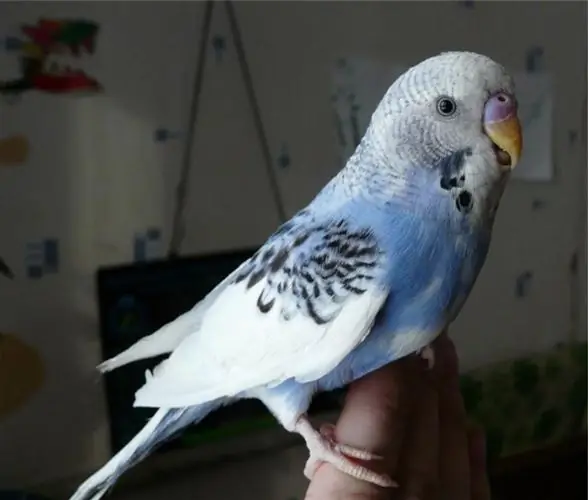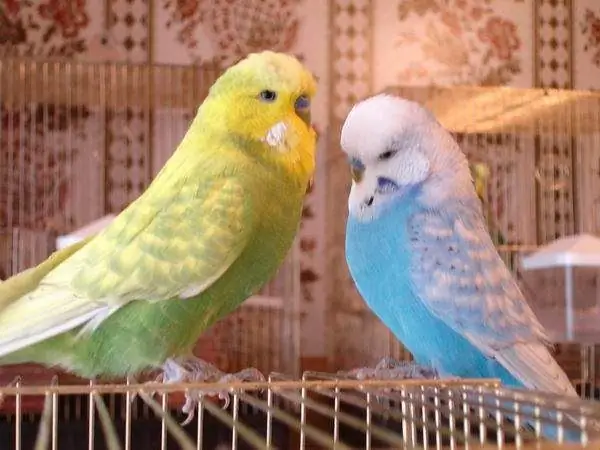- Author Delia Mathews mathews@animalspeace.com.
- Public 2023-12-16 00:05.
- Last modified 2025-01-22 15:45.
You took a beautiful parrot to your house and suddenly found that these birds are very noisy. A scream is heard throughout the apartment, and if they don't like something, they can pinch. In order for the parrot to behave properly, it is necessary to find out the reasons for the loud behavior and then calm it down.

Instructions
Step 1
Do not rush to jump right into action. Keep in mind that parrots themselves are quite noisy. With loud shouts, they can celebrate the sunrise and sunset, and they also resort to sound signals in order to warn of danger. However, if your feathered pet screams nonstop throughout the day, this is already abnormal. So your task is not to silence the parrot completely, but to eliminate the prolonged screams.

Step 2
Keep a diary and write down all the "violent" incidents in detail. This will help you analyze under what circumstances your pet becomes anxious. Once you've figured out the reason for the loud and long screams, it's time to think about how to reduce the excessive noise and excitement of the parrot.

Step 3
Ignore the parrot when he screams too much. If you try to calm him down with a treat, he will remember this and for a while will start screaming again, demanding attention. You will not be helped, and even only hurt by such actions as hitting the cage, splashing water on the parrot, shouting at him. After such treatment, the bird may begin to pull out feathers from itself.

Step 4
To reinforce good behavior, give him a treat when he is calm. Praise him, talk and play with him. Bring him sticks with bark and leaves, parrots love to chew on them. Chat with your pet every day. Instead of screaming, teach the bird to talk. Let her express her emotions through phrases. Remember to always reward your parrot for good behavior. Do not punish the parrot, it will get you nowhere.

Step 5
If the parrot can't calm down, move the cage to another room or cover it with something. Experts believe this helps in most cases. Only after the bird has completely calmed down, remove the covers and move the cage back to the room. This method is not always effective. If your parrot is screaming in fear, it will only make the situation worse. A frightened pet creates a lot of problems; you shouldn't shock him.

Step 6
The parrot can suffer from loneliness and lack of attention. If you don't have time to interact with the parrot, make a friend for him. A new bird of either sex will be adequately perceived by a bored parrot.
Step 7
Release your pet, let it fly around the apartment freely. Remember to close all windows and lock the cat. Leave the TV or radio on for him, the sounds of the human voice and music will surely amuse him. Make sure no wildlife movies are included in the television program, as the growling of predators can scare the parrot.
Step 8
When you get home, say hello to your feathered pet. The greeting will prevent unwanted noise as it is parrots often use voice signals to call.






